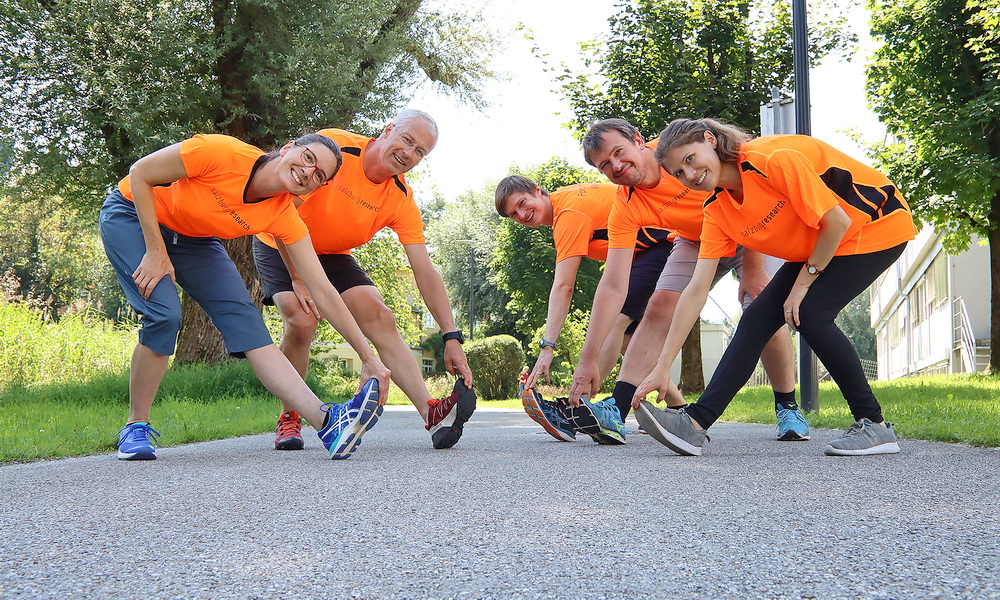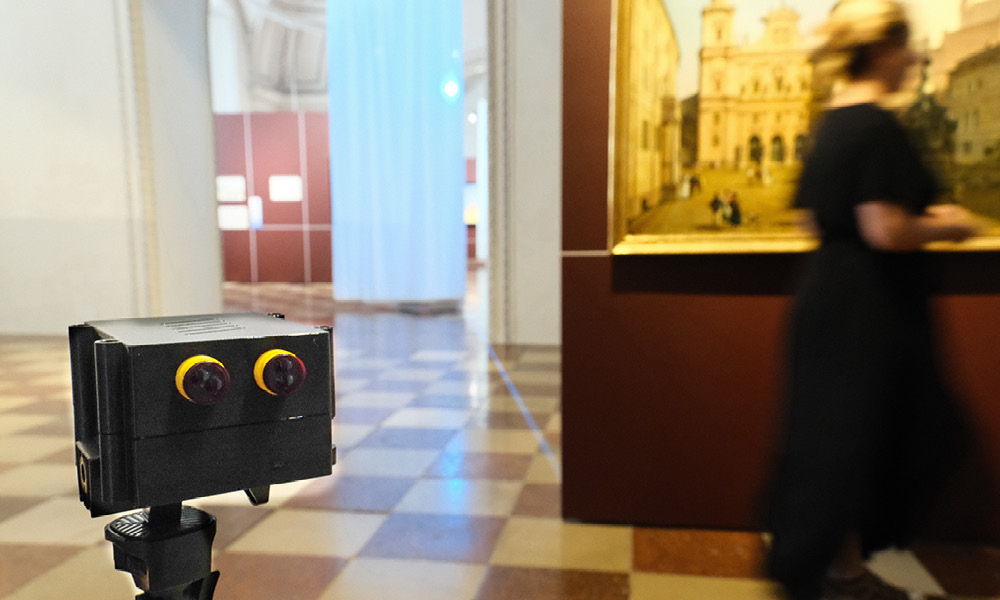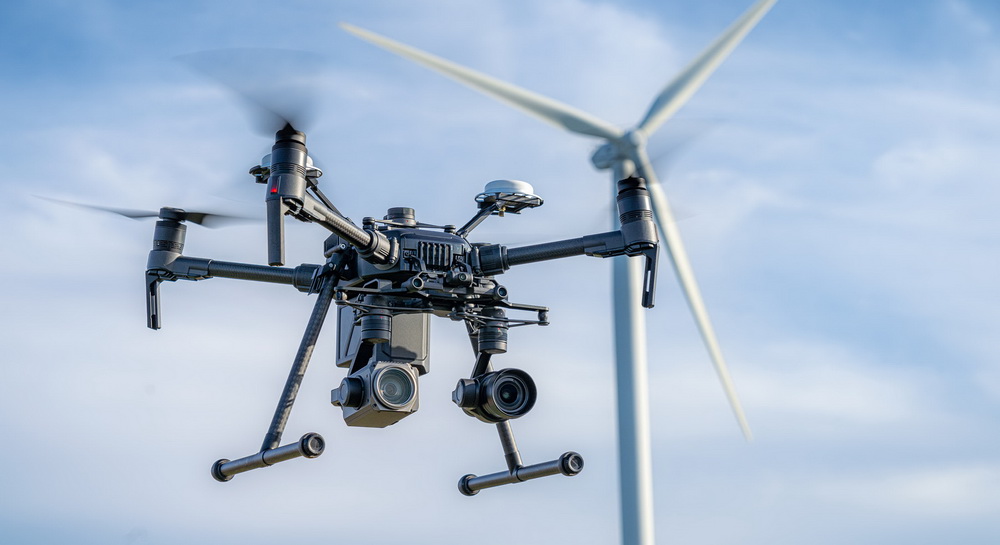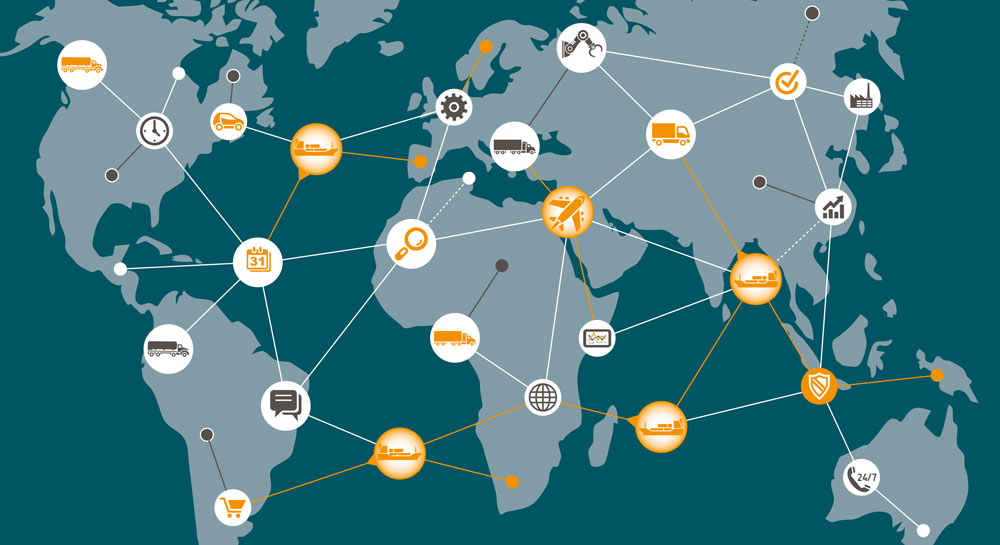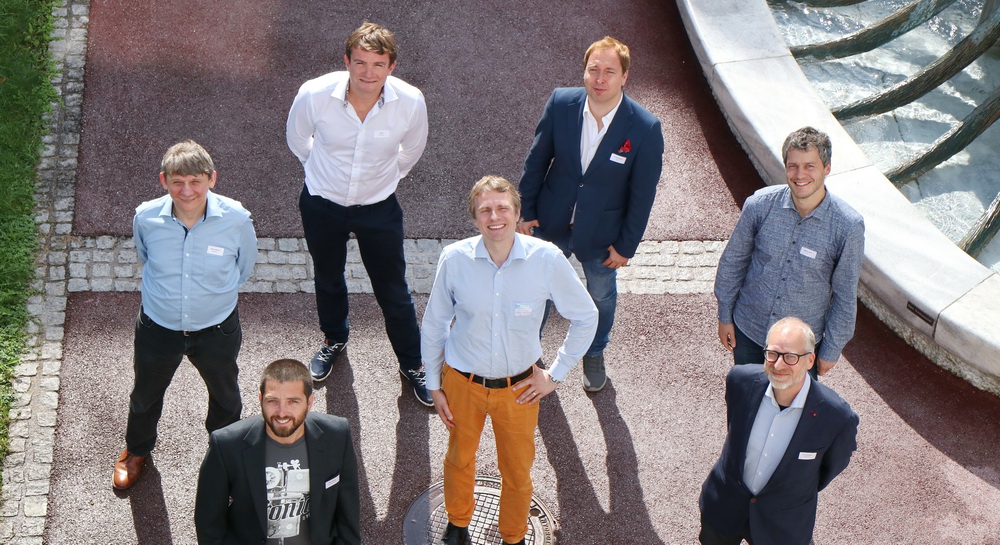
Digital Assistance and Collaborative Robotics
Support people in production in a meaningful way: Digital assistance systems and collaborative robots can relieve monotonous and stressful work and help to cope with the ever-increasing number of variants. In September 2020, Salzburg Research invited to two workshops as part of the Austrian flagship project MMAssist II and the Salzburg Digital Transfer Center, which showed possible uses and application examples for companies as well as results and lessons learned from applied research and industry.
Workshop: Collaborative Robotics in an Industrial Environment
In the morning, Salzburg Research and the Salzburg University of Applied Sciences hosted a workshop in small groups as part of the Digital Transfer Center (DTZ):
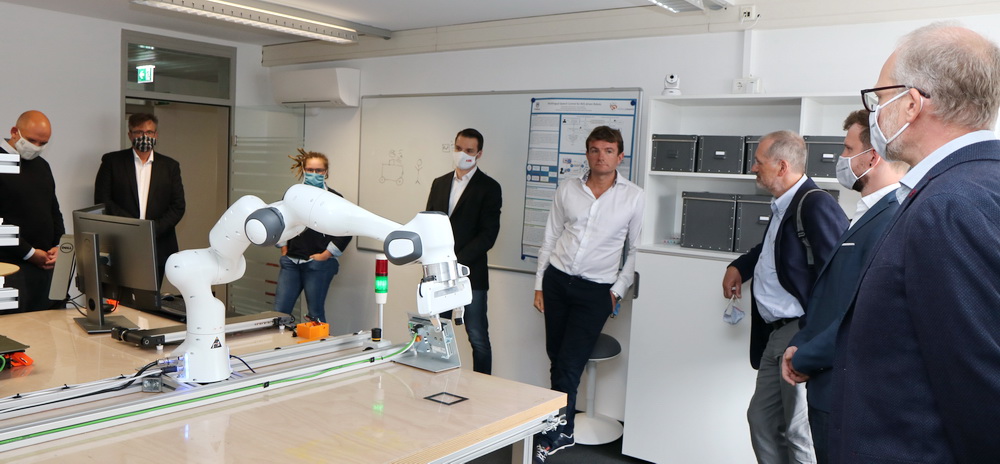
If humans and robots are to share a workspace without a protective device, the company is faces with a number of new challenges. Which software is the right one for my control systems and how is it implemented securely in terms of information technology? What forms of cooperation are there, how can I use them in my company and which safety factors have to be considered? That and more was the topic of the free, interactive workshop “Collaborative Robotics – Humans and Robots in an Industrial Environment”. The participants were given an overview of forms of collaboration, types of robots and possible uses, as well as concrete application examples for companies.
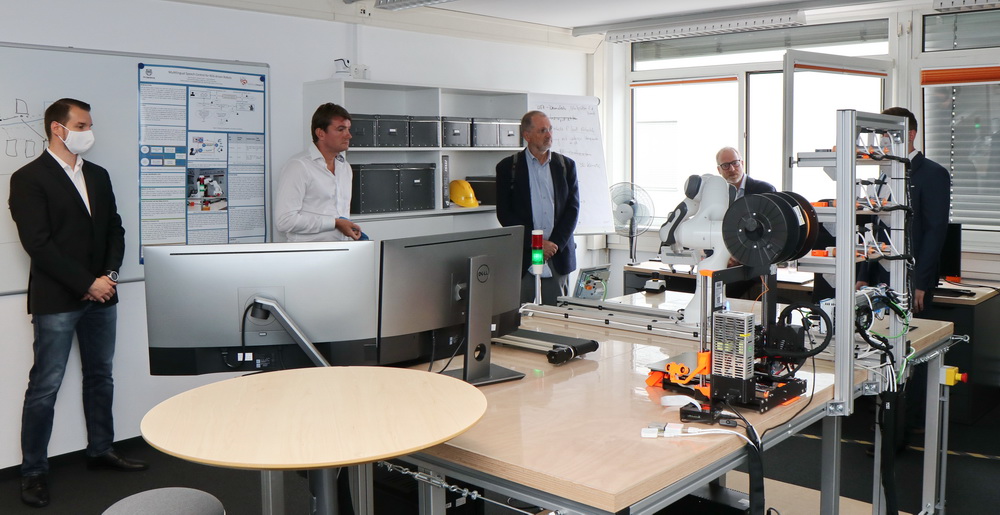
Paths to the Cyber Factory: Digital Assistance and Collaborative Robotics
In the afternoon, Salzburg Research invited people to share experiences on cooperation between man and machine as part of the Austrian flagship project “MMAssist”: Optimized support for employees in the workplace through collaborative robots and industrial assistance systems. Results and lessons learned from applied research and industry.
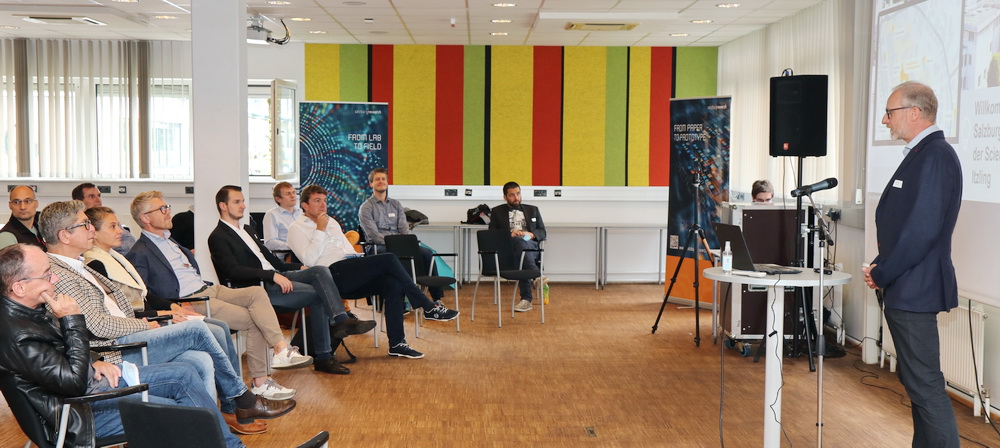
Matthias Plasch (PROFACTOR) gave an overview of the Austrian flagship project MMAssist in the introduction. Michael Zillich (Blue Danube Robotics) spanned the arc from cobots to collaborative heavy-duty applications in the keynote on safe assistance in industry. In his R&D lecture, Wernher Behrendt (Salzburg Research) gave insights into knowledge-based situation recognition to support industrial assembly processes. For this research area within the Austrian flagship project MMAssist, Behrendt received the Best Paper Award at the 2020 IEEE Conference on Cognitive and Computational Aspects of Situation Management (CogSIMA) in August. In his practical lecture, Stefan Thalhuber (Fronius International GmbH) provided insights into manufacturing in the age of digitization and automation.

Alexander Numerich (GMAR) presented the Robotics Initiative Austria in the second part of the event. In another R&D lecture, Matthias Plasch (PROFACTOR) showed event-based knowledge engineering for the intuitive programming of assistant systems in assembly. Finally, Rolf Sint (D. Swarovski KG) reported on the use of machine learning at Swarovski using Image Recognition @ Swarovski.
Moderation: Felix Strohmeier, Salzburg Research
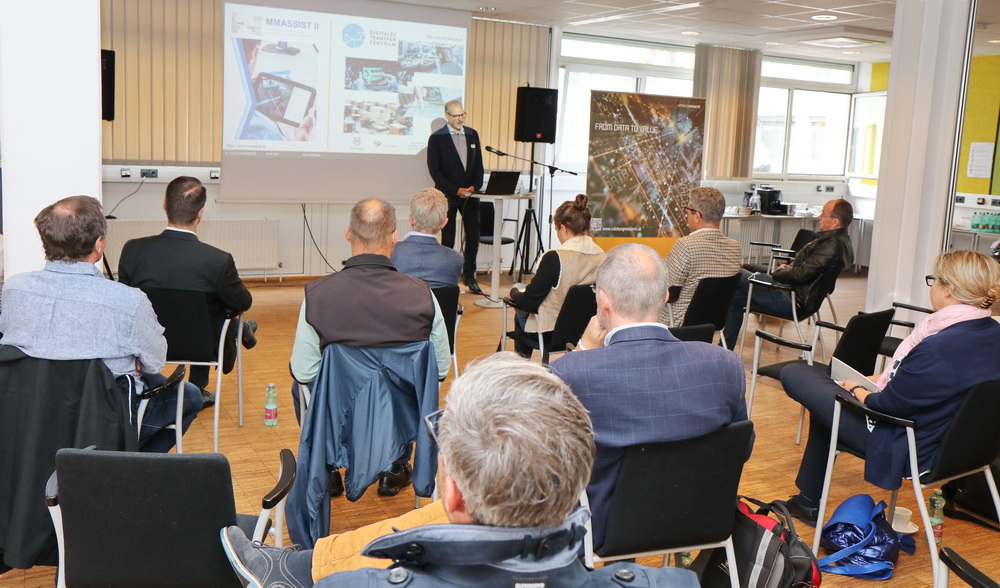
Die Nachmittagsveranstaltung fand hybrid sowohl vor Ort mit strengen Covid-19-Auflagen wie auch digital statt. Wir bedanken uns herzlich bei allen Vortragenden wie auch Teilnehmerinnen und Teilnehmern.


